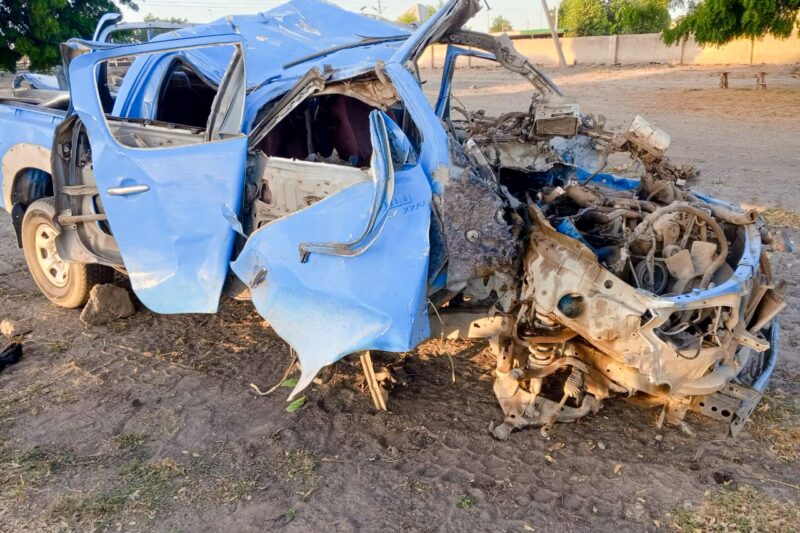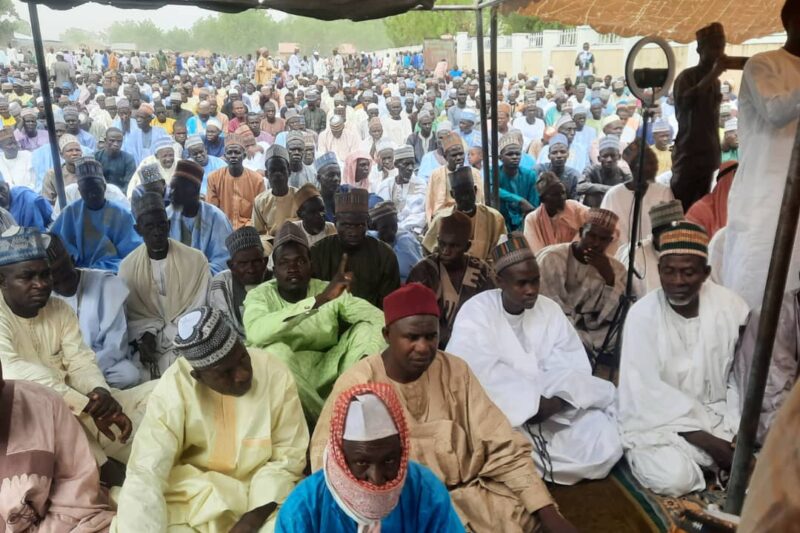The overflowing Ngadda-Bul, a major river within Maiduguri in Borno State, has left some irrigation farmers counting their losses, while others are elated, have thanked Allah and are expecting a bumper harvest.
The river is an important waterway because it flows into Lake Chad which, in the past few years, has begun to shrink quite seriously. Climate change experts have expressed their dismay about the shrinkage.
Ngadda-Bul’s plains, banks and shores support both irrigation farmers and fishermen.
But this year, even though it is not a particularly harsh or unusual rainy season, the river has broken its banks. This is not the first time – the rushing waters have previously swept people to their deaths, destroyed properties on its banks and forced inhabitants to move to higher grounds.
Parts of Maiduguri, the capital of Borno State, mainly in the low-lying areas close to the river, such as Adam Kolo, Gwange and Moduganari, are totally flooded. People are using paddling boats to get across the water to other areas of the city. Some have fled to higher grounds but others do not have anywhere else to go. Houses and other property have been damaged. Some have collapsed.
But it is the farmers whose lands have been most affected by the overflowing river, especially those with land on the shores of the Ngadda-Bul.
Ibrahim Bukar Mairi, an irrigation farmer from the Shiokara area of Maiduguri, told RNI that the overflowing river had destroyed farmlands on the river’s shores.
“I’m an irrigation farmer, having inherited the farm from my father. So, I have been in doing this for many years – since I was small boy.
“When the river overflows, it destroys our farms because our land is on the river’s shores. In a good year, when the river’s water does not break the banks, we usually plant our crops, such as cassava, pepper, tomatoes, among others. We did the same this year but, unfortunately, the river is overflowing and it has destroyed our crops.”
Mairi said the river had brought with it “excessive water which just engulfed our land. It came so suddenly that we did not have time to save any of our crops. It is very disturbing even though it’s a destiny from Almighty Allah and we can’t do anything about it except to wait patiently for the water to subside.”
He said it was mostly rice farmers who planted the crops on the shores of the river and they had been severely affected by the flooding.
“This year, rice farmers have not been able to plant because of the excessive water. No one can continue with our irrigation farming activities here and we will have to wait until the next season. This is going to have a major effect on food production and on our livelihoods. We depend solely on selling farm produce, such as tomatoes, peppers, carrots and cassava, among other leafy vegetables.”
But the situation was quite different in the Jere Local Government Area, where farmers were rejoicing about the floods.
Abba Idris said: “I have been involved in irrigation farming activities for a long time and it has been my only means of livelihood. This year, I’m really grateful to Almighty Allah. Right now, I’m standing inside my farm and, as you can see, River Ngadda-Bul arrived in full force this year. The river has been good for me because my farm is not on the shores of the river, but on the higher banks. When it overflows like this, I know is causes great destruction to the farms along the shores and even floods some areas within Maiduguri and its environs.
“However, mostly we irrigation farmers here in Jere are very happy – we welcome the rain and the floods because now we know we will have enough water to continue our irrigation farming activities.
“The reason we are so happy is that often we face a lot of challenges because we lack water. In the dry season the river shrinks and dries up. As a result, we have suffered a lot in the past two to three months. It was so bad that our farmlands became like football fields.
“We rely on River Ngadda-Bul to provide water for our irrigation. And, it is not only important for us, here in Jere. How the river flows affects not only those in Borno State but also farmers in on the shores of Lake Chad and in the whole of the Lake Chad Basin region. We need the water,” he said.
“We spent a lot of money to keep irrigation farming activities going before the rainy season arrived. There was some rain but now that River Ngadda-Bul is flowing fully, we are pleased we spent that money. You can see our farms are flourishing. They are all very green and we hope that we will produce a bumper harvest this season.”
SHETTIMA LAWAN MONGUNO








